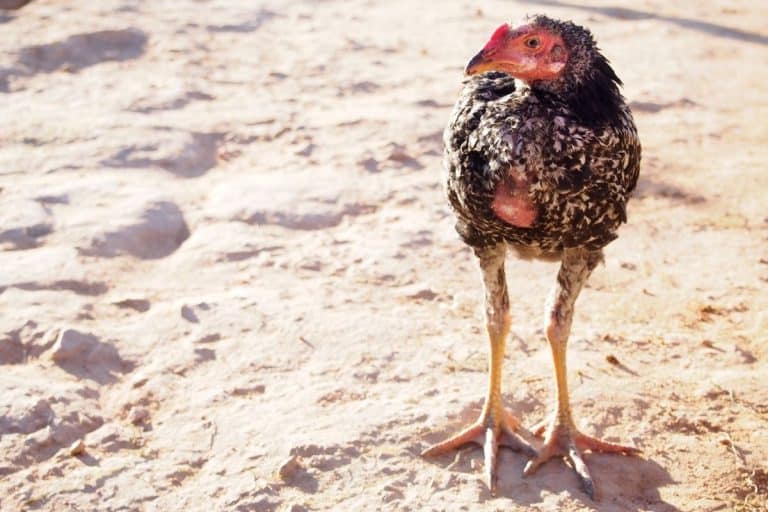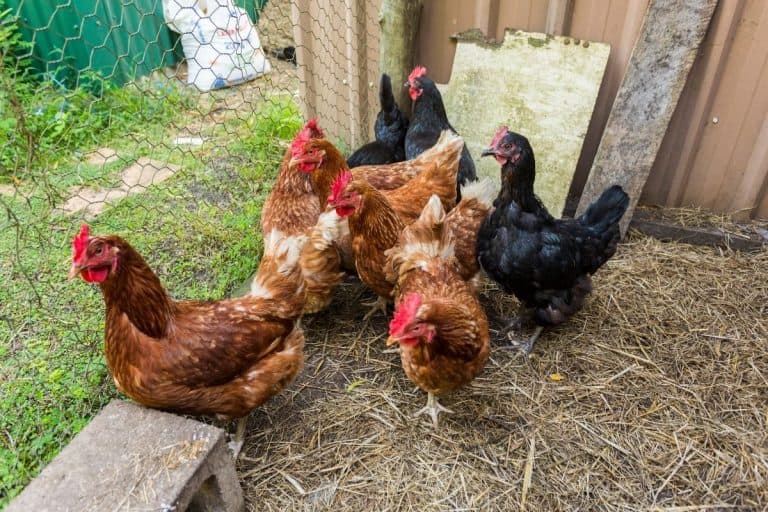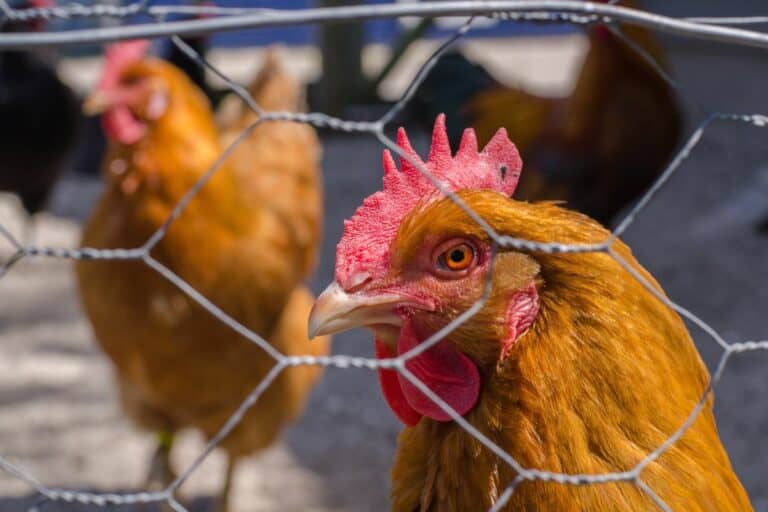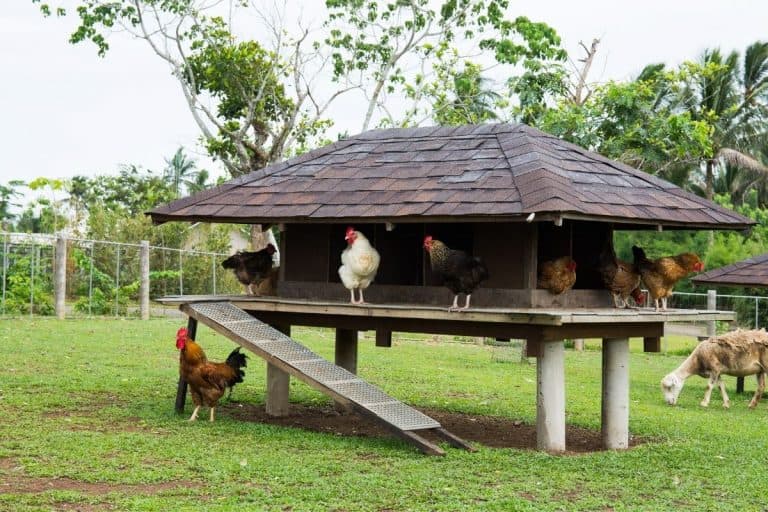How Often Should You Clean Out A Chicken Coop?
Cleaning the chicken coop is a yucky job but a necessary one, as it can harbor some nasty smells and bacteria, like ammonia and salmonella, over time. When dust, dirt, cobwebs and chicken feces start to add up in the coop and its bedding, that’s when you will start to have issues, which can affect the health of both you and your birds!
A chicken coop should be completely emptied and deep cleaned twice yearly and the bedding should be checked over and spot cleaned once weekly.
It would be wise to keep the area free of nasty and harmful fecal build-up, old food, dust and dirt weekly in order to have a healthier flock, plus you will spend less time scraping when deep cleaning rolls around. This article will go into how to clean your coop and the frequency that you should do so.
But before you dive into this topic, did you know I've got a page packed with my go-to chicken stuff? From the best feed to handy tools, it's all there. Don't you want the best for your flock? Check it out right here.
When Should I Clean My Chicken Coop?
Weekly cleaning is a good rule of thumb when it comes to caring for your chicken’s hen house. It is the area where they roost, sleep and lay eggs, meaning it is an important area for your birds and should therefore be kept clean.
The frequency that you would clean your hen house also depends on the size of the chicken coop, its layout and the number of chickens that you have.
I’m not saying that you have to take all the bedding out and spray everything down every week, but depending on the depth of the bedding material that you use, it will need to be turned over and scooped to remove fecal matter and send other debris to the bottom.
Cleaning a coop is messy but rewarding as your chickens are always happy to have a fresh and clean hen house. Using vinegar water and replacing old, soiled bedding with fresh and clean bedding, while sticking to a cleaning schedule will go a long way in your chicken’s happiness, health and of course, your time.
Vinegar Water – The All Natural Disinfectant
Vinegar water is an excellent, all-natural and safe way of disinfecting and getting rid of unwanted smells in your chicken coop (. It is important to avoid potentially dangerous chemicals such as bleach in your henhouse, as it can be damaging to their eggs as well as their respiratory system.
You can get a gallon of cleaning vinegar on Amazon (check the price here) or anywhere else, and use spray bottles for more convenience (these for example) to clean the coop.
Wait, I have some recommendations for you!
Before you go any further, I want you to take a look at some of the recommendations I've handpicked for you. I think these are essential items you should have for your chickens flock. You can check them out and buy them directly from Amazon.
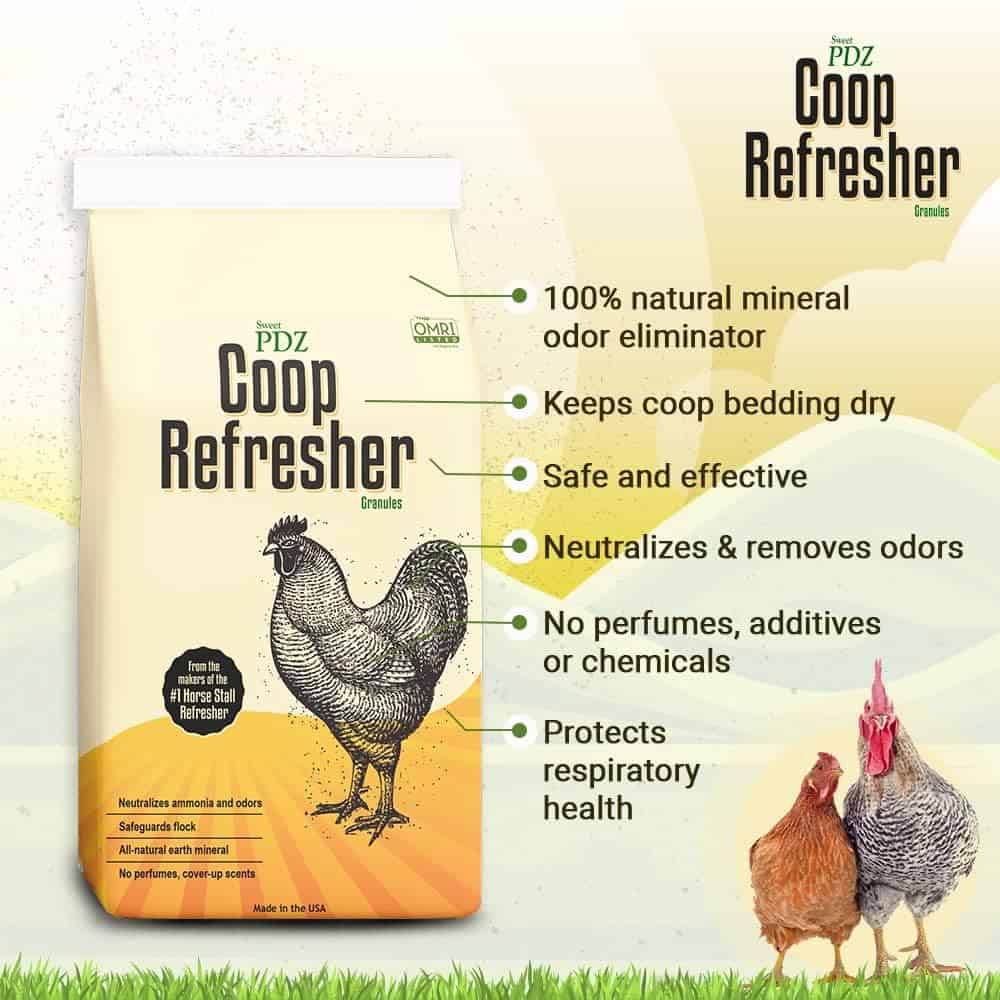 | 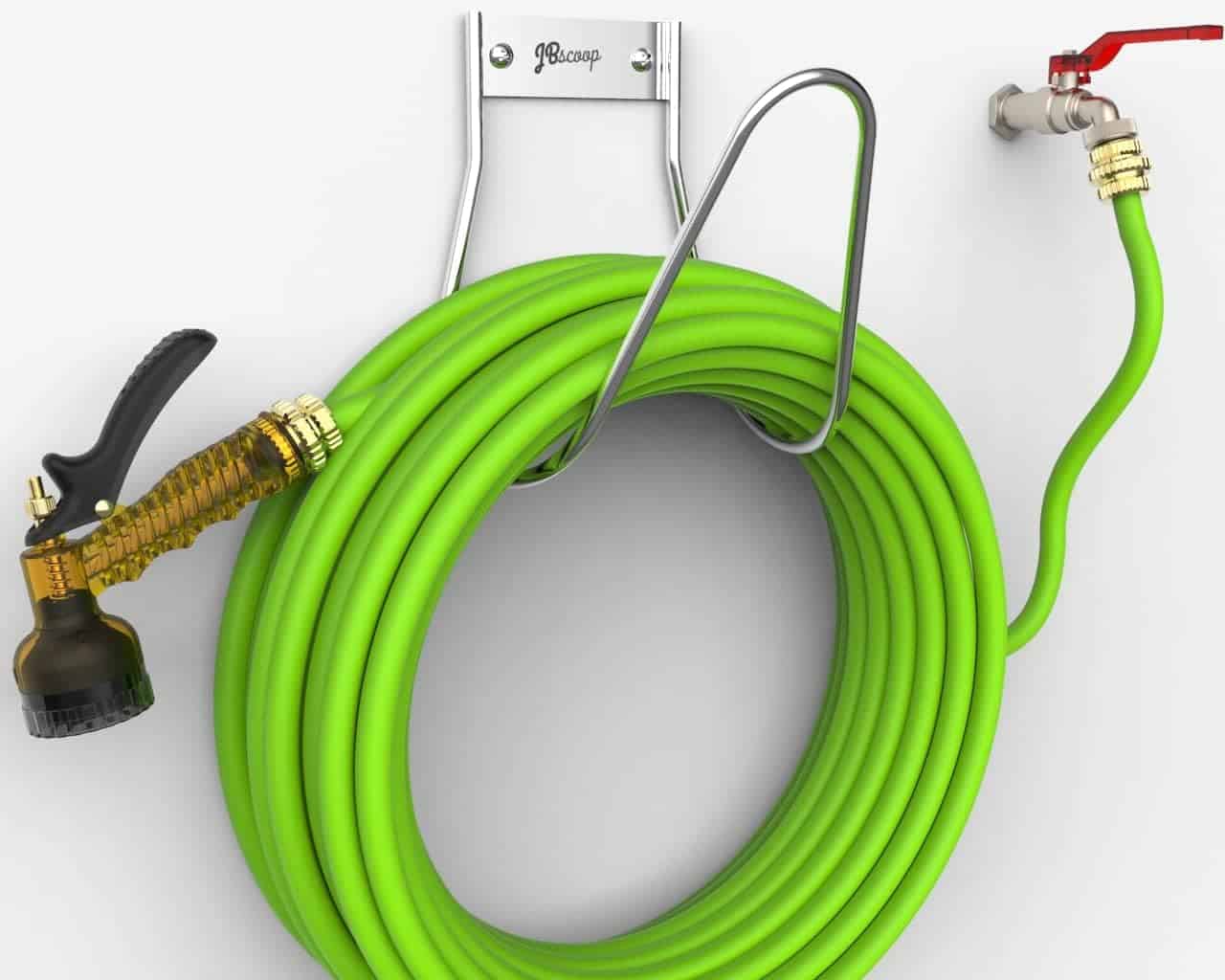 | 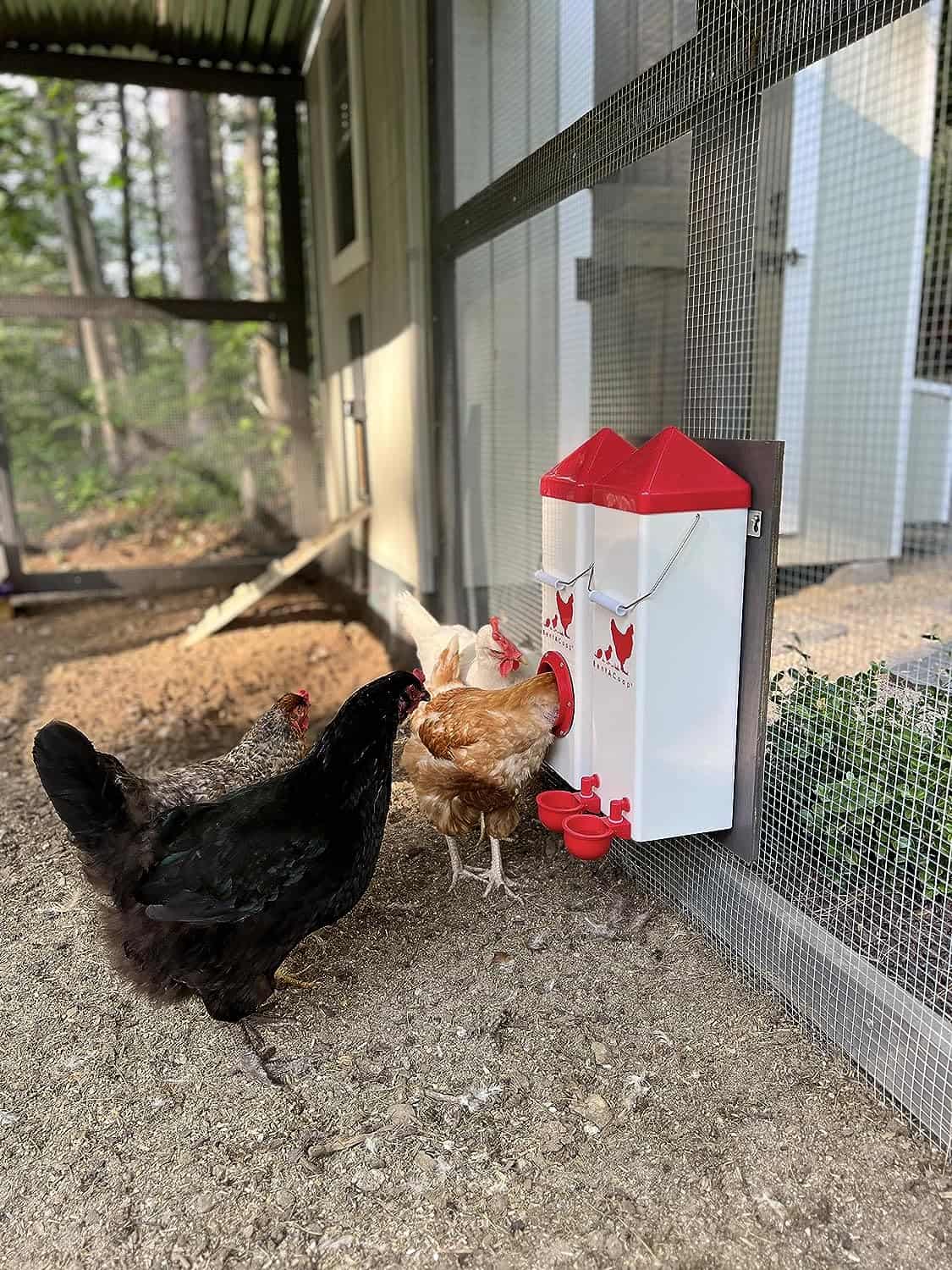 | 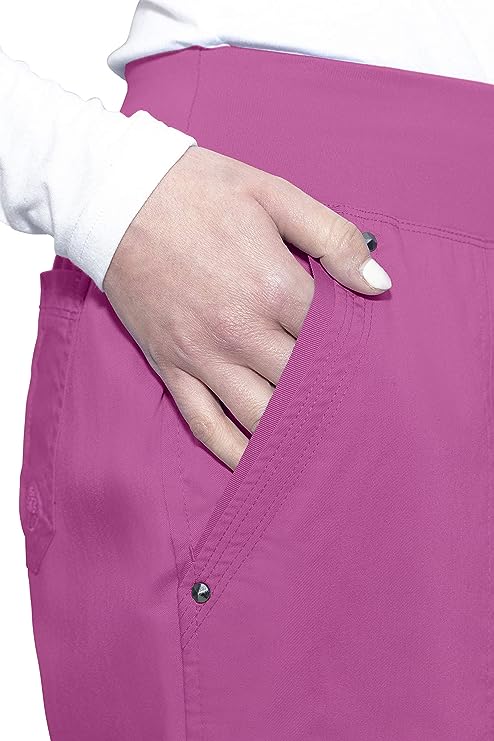 |
| Essential accessory for your coop | No more tripping over hoses! | Predator protection made easy | Comfort + style is possible |
How Often Should I Clean The Chicken Coop And What To Do?
Most farmers and backyard chicken raisers like to keep the chores to a daily, weekly, monthly and biannual schedule. The cleaning should be done often, as it is important to maintain a clean coop. Your chicken’s health depends a lot on how well and how frequently you are keeping up on your hen house’s cleanliness.
Daily
By performing your daily and weekly chores, you can dramatically help yourself in the future by making the monthly and biannual cleanouts much easier.
Daily, you should be inspecting the coop area for any dangers (predators/weather damage), spot cleaning and replenishing bad bedding here and there, and of course, picking up eggs.
Weekly
For weekly or twice-weekly clean up, mucking out the dirty bedding and refreshing the coop with new bedding is first. This is an ideal time to replenish any old and soiled nesting box material as well. Remember, having a stink and bacteria-free coop is key in having happy and productive chickens.

Dusting the walls and other hard surfaces of any dirt and cobwebs will help keep down on bug issues and collect debris on the walls and ceiling.
This is also the time when you should take out all their feeders and water fountains or troughs for a cleaning. Scrub and wash them with vinegar water and allow them to dry in the sun, the same goes for their nesting boxes.
Monthly
Again, wipe down doors, walls and ceilings of any debris, dust and cobwebs. Scrape the roosting bars of any fecal matter and disinfect all surfaces with a vinegar-water spray.
You don’t have to necessarily go all out and clean the entire coop, as long as you have kept up on your daily and weekly chores, of course. Skipping out on those will make monthly cleanings much harder.
Biannually
Every 6 months is when you should plan on doing a deep clean of the whole chicken coop. This entails removing every bit of bedding, food and feather from the inside, spraying completely out and scrubbing to remove any caked-on or built-up debris. It may be messy, but at least it’s only twice a year.
Allow the coop to completely dry before placing any new bedding and nesting box material inside.
Also, be sure to wear appropriate face, hand and eye protection as you are aerosolizing chemicals, debris and fecal matter in the air, which you wouldn’t want to breathe any of it in.
| Daily | Weekly | Monthly | Biannually |
|---|---|---|---|
| Pick the eggs. Inspect the coop. Replenhish bad bedding if needed. | Wash all feeders and water fountains. Replace the bedding. Dust the walls, remove cobwebs. | Scrape the roosting bars. | Deep cleaning of the whole chicken coop. |
To get more details about each task, you can read the other articles on the same topic:
- 7 Tips To Keep Your Chicken’s Water Clean
- How to Keep a Chicken Coop from Smelling (Tips and tricks)
- What Is The Best Ground Cover For A Chicken Run?
- What are the Differences between a Chicken Coop and a Run?
How Often Should You Change The Bedding In Your Chicken Coop?
For the most part, you should probably be changing and replenishing old bedding once weekly. The type of bedding that you use and the depth of it in the coop will have a lot to do with how often you need to change it.
However, the deeper the layer of bedding is, the less frequently you should have to clean it. No matter what it looks like though, plan to deep clean every 6 months as this is the best practice, even for the neatest of flocks.
Normal Bedding Method
The average chicken farmer is going to probably use pine shavings. This seems to be a popular choice for most. They lay down a few inches of pine shavings in the coop and scoop and remove the soiled bedding throughout the week.
When using this method, it will be necessary to do a more thorough cleaning about once a month. And use larger cut pieces as the smaller and dustier ones can be ingested or get into their respiratory tracts.
Wood shavings like pine and cedar are inexpensive and an easy way to add a deep layer of bedding to the chicken coop. Plus, they are absorbent, easy to shovel and do a great job at controlling unwanted odors.
Most people using pine shavings will need to remove and replace any old or dirty bedding on a weekly basis. This is assuming that we don’t have over 7 or 8 chooks in one space.
Deep Litter Method
This form of chicken coop bedding, or litter, is where you are creating compost out of their poop on the floor of your hen house. Many people who are willing to give it a try end up finding it to be their new and preferred method because it is more sustainable and super easy to manage.
And trust me, it’s seriously not that gross and you would be surprised at how well it controls stinky odors and ammonia.
First of all, to make compost, you have to have a mixture of ‘browns and greens.’ You will start with a layer of ‘browns’ or organic matter like pine wood shavings and as the chickens defecate onto it (the ‘greens’) the material begins to compost over time. Adding more shavings little by little and the chickens scratching will aerate the material, which continues the composting process.
It can take about 2 months before you will have actual ‘deep litter and after a year you will be left with rich and beautiful compost. This would be the one exception to removing everything every 6 months, assuming that the deep litter method is going as planned.
Why would you choose to do a deep litter method over the other? Well, because it’s easier and more beneficial! After all, you will end up with super healthy compost for your garden in the end. Not to mention all the other benefits like:
- It’s not actually smelly! If you add some lavender or other wood shavings it can smell even nicer!
- You get compost!
- It’s way easier to manage and requires less maintenance than other litter methods.
- There are lots of healthy microbes and live cultures present in the compost for your chickens to eat.
- Lastly, it’s totally safe!
What Do I Do With All This Chicken Poo?
If you’re new to raising chickens you may wonder as you’re performing your weekly coop cleaning duties, what do I do with all this chicken poo? Well, there are actually a few different things you can do, such as create a compost pile, use it in the garden, burn it or dump it somewhere for nature to break down.
Composting And Dumping
Composting is a really helpful and sustainable option for those looking to dispose of chicken poop in a reusable way. After a few months of adding browns and greens, you will have a rich and excellent source of fertilizer for your garden during the summer. If you have never composted, the fall is a great time to start because you should have it ready just in time for spring planting.

Dumping the old litter and fecal matter is another way of disposing of it in a natural way. The earth breaks it down for us and there’s not much else to be done. The wildlife and bugs will help do the rest.
Burn It
This would be best used if you like the normal litter method of using straw, pine shavings or newspaper in your coop. It is an easy solution for those in a rural area who need to get rid of a pile of chicken crap pretty quickly. However, you would want it to be dry and you should probably stand downwind as well.
Sell It!
One method of disposing of chicken poop I didn’t mention above. I know that it sounds strange to sell poop but plenty of farmers and garden enthusiasts alike know how valuable chicken stool can be for fertilizing. Even if they have their own compost pile, many people will still purchase your chicken poo by the bag! Who knew people wanted to buy poo??
The Importance Of A Clean Coop
Keeping your chicken’s hen house clean is a vital role as their primary caretaker. There are so many reasons that dictate why and how often a chicken coop needs to be cleaned. Without a fresh and ammonia-free hen house you can see a decline in your egg production as well as the overall health and happiness of your feathered friends.
Another option is to use diapers for your chickens. Just kidding, but that’s a real thing for some people :-).


